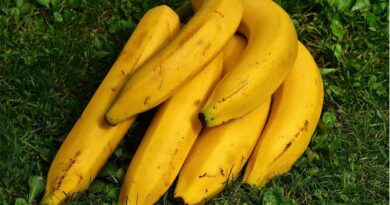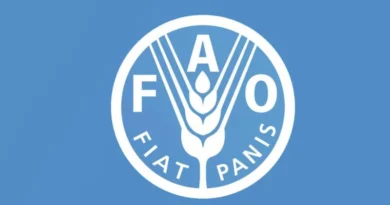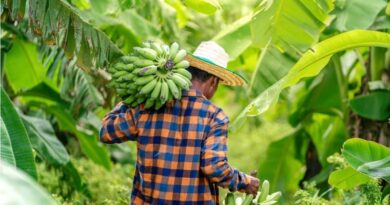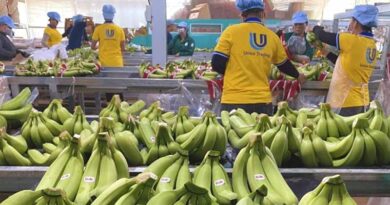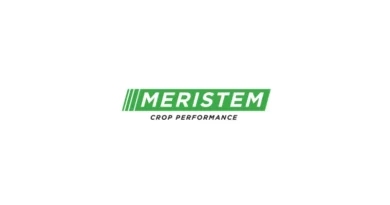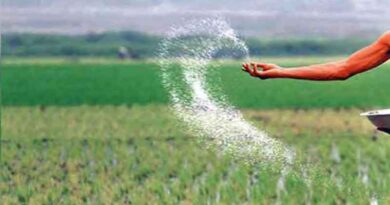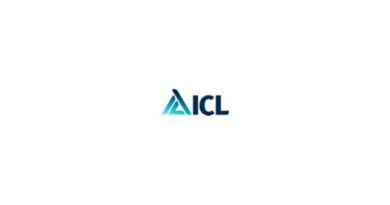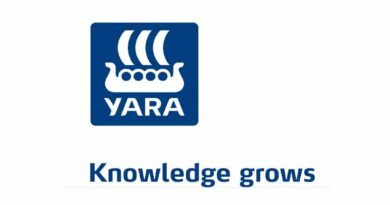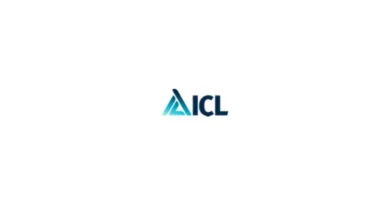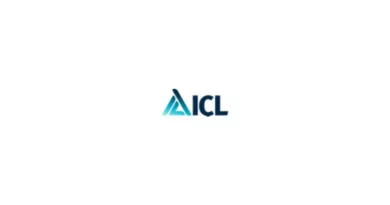Seipasa Strengthens Its Banana Bio-protection Strategy With New Registrations
13 June 2024, Spain: Bananas are one of the most consumed tropical fruits in the world. Almost 3 out of 4 bananas exported in the world come from Latin America, a region that has only increased its weight in this strategic crop for its economy. The top exporters include Ecuador, the Philippines, Guatemala and Costa Rica, but Mexico has also entered the top 10 in recent years.
In 2022, the Aztec country produced more than 2.5 million tonnes of bananas, almost a third of which were destined for international markets. The importance that this country is gradually acquiring is one of the reasons why the city of Mérida in Mexico has hosted the 2024 edition of Acorbat, the most important scientific and technical meeting dedicated to banana cultivation at international level.
According to the organisers, the event attracted more than 1,500 visitors per day over the three days, with more than 60 exhibitors. Among them was Seipasa, which attended Acorbat to share its knowledge of banana management from the perspective of biostimulation and, in particular, biocontrol with the presentation of its new portfolio of biofungicide solutions.
Carlos Castro, commercial director of Seipasa in Mexico, explains the great interest shown by growers in new solutions to help them increase the value of their crops and access the most demanding international markets.
Thermometer of the banana industry
“Acorbat is the big thermometer for the banana industry throughout LATAM and Central America. The agro-export segment has shown us the need for alternatives capable of providing commercial value to the fruit and efficiency in disease control. The trend is towards zero waste, as large retail chains are becoming increasingly demanding in terms of MRLs (maximum residue limits), even going so far as to lower the parameters set by the EU in Europe,” says Carlos Castro.
In this context, Seipasa took advantage of the Acorbat showcase to present the biofungicides Fungisei and Seican, two new solutions with phytosanitary registration for the control of banana diseases.
Banana biofungicides
Fungisei is a broad-spectrum biofungicide developed from a highly effective and pure strain of Bacillus subtilis that acts at the earliest stages of the disease. The action of Fungisei prevents pathogen growth and works by disrupting the fungal cell membrane and promoting induction of systemic resistance (ISR) mechanisms in the plant. Fungisei has no withdrawal period.
Seican is a biological fungicide and acaricide developed from a highly engineered formulation of natural origin. It provides rapid curative and eradicant action for the control of various pathogens.Its formulation offers precision, reliability and flexibility of use as it can be applied the day before harvest without leaving chemical residues on the crop. In addition, Seican is an optimal tool for resistance management.
Seican is also the latest phytosanitary registration in Seipasa’s catalogue of biocontrol solutions for bananas.
Alternative to mancozeb
The product has positioned itself as a real alternative to mancozeb, one of the most widely used fungicides to control black sigatoka in the growing regions of South and Central America, but which is no longer approved in the European Union due to the presence of residues in the crop and the risks it poses to human and environmental health.
Carlos López, Seipasa’s technical manager for Mexico and LATAM, explains that Seican maintains the same level of efficacy as mancozeb, but does so within the regulatory framework that has already restricted the latter’s use.
“Mancozeb is a fungicide that will be restricted and phased out, as other synthetic agrochemicals have already been, mainly insecticides as part of this balance. Seican is a safe and reliable alternative that will allow us to access the most demanding consumer markets, thanks to the fact that the product has all the certifications and regulations that support its use,” emphasises Carlos López.
Another important feature of Seican is that its active ingredient is included in the BM 03 group of the FRAC (Fungicide Resistance Action Committee) the international organisation that classifies fungicides according to their resistance behaviour and issues guidelines for their use.
Preventing resistance
For Miguel Lozano, Seipasa’s sales representative in Ecuador and Colombia, Seican’s inclusion in this FRAC-endorsed group certifies the product’s ability to prevent the emergence of resistance: “Ornamental and banana technicians, especially those working with black sigatoka, carry out their rotations with the FRAC groups. It is very important for Seipasa to have the support of this international committee, which recognises Seican as a new, effective and solvent tool in rotation strategies,” asserts Lozano.
The FAO, the Food and Agriculture Organisation of the United Nations, estimates that banana production in Latin America and the Caribbean will reach 36 million tonnes by 2030, with the European Union, the United States and China as the main import markets. The growing strategic importance of the crop in the producing countries, together with the strict regulations imposed by the destination markets in terms of fruit quality and established MRLs, confirm the need for new biocontrol tools that provide efficacy, safety, commercial value for the fruit and production free of chemical residues.
Also Read: Onion Dynamics Prompt Talks with Farmers to Bolster Buffer Stock
(For Latest Agriculture News & Updates, follow Krishak Jagat on Google News)


